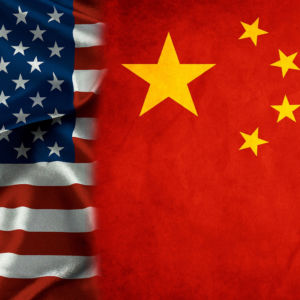China’s claims to the breakaway island province of Taiwan have become so strident, so carefully menacing, that the danger of China attempting to wrest it by force of arms, daring the U.S. to come to Taiwan’s rescue, has increased to its highest level in decades.
As Mao Zedong’s forces finished their takeover of the Chinese mainland in 1949, the “Nationalist” Chinese forces of Chiang Kai-shek escaped the Red Army by fleeing to the island redoubt. Mao and his successors have been shaking their fists from their side of the Formosa Straits ever since.
Pres. Joe Biden made clear to China’s Pres. Xi Jinping in a two-hour telephone conversation that he would speak out against China’s repression of the Muslim Uighurs in northern and northwestern China and suppression of democracy in Hong Kong. It’s not certain, however, if Biden would demonstrate America’s commitment to the defense of Taiwan as then-President Bill Clinton did when he sent warships into the straits between Taiwan and the mainland in response to Chinese threats in 1996.
I visited Taipei during the Taiwan Straits crisis and will never forget the feeling of relief as the U.S. sent an aircraft carrier battle group led by the USS Nimitz into the waters between Taiwan and the mainland in direct response to intimidating Chinese missile tests. It was clear Clinton had shown the U.S. would fight for Taiwan if China translated its rhetorical threats into war. China since then has vastly increased its firepower and become a much more aggressive, wealthier power, posing a threat not only to Taiwan but also to Japan, which overran much of eastern and northeastern China in the 1930s.
Long-running acrimony over Taiwan relates to conflict with Japan over half a dozen small islands known as the Senkaku to Japan, Diaoyu to China. Japan occupies this unpopulated cluster in the East China Sea, fending off Chinese fishing boats with water cannon fired by coast guard vessels. China claims the islands just as it claims Taiwan. That’s because Taiwan, although occupied by Japan after the Japanese victory in the Sino-Japanese war in 1895 and ruled by Japan until the Japanese surrender in 1945, looks to both Japan and the U.S. for support against China in a showdown.
We can only hope the day will never come when President Xi decides to invade and conquer Taiwan. The U.S. is committed to standing up for the island, but Biden would have to decide very quickly if he wanted to go to war with China. The White House and State Department have reiterated the U.S. commitment to Taiwan. For China, the challenge would be to test whether the U.S. would back up that commitment militarily.
One hopeful sign is that Biden would like to treat Taiwan as a nation independent from the mainland. That represents a departure from the past after Pres. Jimmy Carter in 1978 transferred U.S diplomatic recognition from the Kuomintang or Nationalist Chinese government in the Taiwan capital of Taipei to that of the People’s Republic of China in Beijing. Carter’s decision was really a reflection of the reality that China was ruled by Beijing.
In those days, the Communist government in Beijing and the regime in Taipei were so hostile toward one another there was no interchange between Taiwan and the mainland. As China under Deng Xiaoping adopted a much more sensible outlook toward capitalism, however, direct trade was established and regular air service opened between Taipei and the mainland. Pres. Xi, however, gives the impression that he might reverse the policy of live-and-let-live not just in relations with Taiwan but also in a number of other disputes around China’s periphery.
Biden has reminded European leaders, “We have to push back against the Chinese government’s abuses and coercion that undercut the foundations of the international economic system.” Similarly, the U.S. wants to stand behind Taiwan, America’s ninth biggest trading partner, with which U.S. companies have entered into huge arms contracts for years.
The U.S. could show its real loyalty and support of Taiwan by recognizing it as an independent nation. One reason not to do so is that China might then intensify military pressure. A Chinese spokesman warned that “Taiwan Independence means war.” If China did attack Taiwan, the U.S. should rush to its defense as it would any nation, such as South Korea, with which the U.S. has a formal military alliance.

